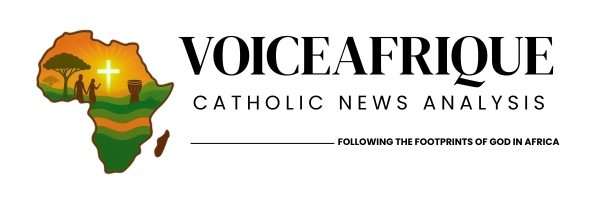
For more than a century, the global Catholic Church viewed Africa as a vast mission field, a continent in dire need of evangelization and structure. European and North American missionaries arrived to plant the seeds of faith, establishing institutions and proclaiming the Gospel. Today, those seeds have blossomed into a vibrant, self-sustaining Church. From thriving seminaries and religious houses to dynamic liturgies and a surge in vocations, Africa is no longer merely a recipient of missionary efforts, it is a powerful force of evangelization, a living testament to the Gospel’s fruitfulness. This historic transformation compels the global Church to fully recognize and affirm the maturity of the African Church.
From Receiving End to Sending End
The Second Vatican Council’s decree Ad Gentes calls the Church to “go and make disciples of all nations.” For decades, Africa was seen primarily as the recipient of this mission. But in the 21st century, a profound shift is underway: Africa is now a key player in the Missio ad Gentes. African priests serve on every continent, revitalizing parishes in secularized regions of Europe and North America. Indigenous and international African religious congregations send missionaries to Europe, the Americas, Australia, and Asia. African bishops and theologians increasingly shape the global Church’s theological, ethical, and pastoral discourse.This is more than a symbolic development, it is a structural, numerical, and theological reality. The time has come for the global Church to recognize Africa not as a mission territory, but as a missionary Church in its own right.
Signs of Maturity in the African Church
The vitality of the African Church is evident in several key areas. First, priestly vocations are flourishing even as they decline in Europe. According to the Holy See’s 2024 Pontifical Yearbook, Africa had the highest number of seminarians in 2022, with 34,541 men studying for the priesthood—a 2.1% increase in major seminarians over two years. This growth reflects deep faith and a steadfast commitment to service.
Theologically and ecclesially, African scholars are making significant contributions to theology, biblical studies, and liturgy. The Pan-African Catholic Theology and Pastoral Network (PACTPAN), founded in 2021 with Pope Francis’s support, marks a major milestone. PACTPAN unites theologians, pastors, and lay leaders across the continent and diaspora, fostering a contextual African theology rooted in lived experience and culture. This network signals the Church’s intellectual maturity, shifting from a reactive stance to a visionary, interconnected one.
A “reverse mission” is in full swing, with African dioceses and religious congregations actively sending missionaries worldwide. In 2025, for example, Nigeria’s Catholic Diocese of Orlu had 110 priests serving in the United States and Canada. Nigerian congregations like the Missionary Society of St. Paul (MSP) and the Congregation ofthe Sons of Mary, Mother ofMercy (SMMM) also have dozens of priests ministering in the West. Women’s religious orders, such as the Daughters of Divine Love (DDL) and the Daughters of Mary, Mother of Mercy (DMMM), serve globally in education, healthcare, and spiritual formation. These missionaries bring joyful, community-centered liturgies, deep Marian devotion, and fresh evangelical zeal—rekindling the Gospel flame where it has dimmed.
Moreover, African dioceses now independently manage seminaries, run universities, and publish theological resources. They establish parishes, schools, hospitals, and social outreach programs. Episcopal conferences like the Symposium of Episcopal Conferences of Africa and Madagascar (SECAM) provide strong leadership in both ecclesial and sociopolitical spheres. This institutional growth and autonomy mark a critical transition, positioning the African Church as an active agent of the Gospel within its sociocultural context—no longer merely a recipient of external aid.
The Vatican’s Slow Shift: A Gap between Structures and Reality
While Popes John Paul II, Benedict XVI, and Francis have praised the African Church, some Vatican structures still treat Africa as a dependent mission field. Many African dioceses remain under the Dicastery for Evangelization rather than the Dicastery for Bishops. Financial appeals often frame Africa as the “Church in need” rather than the “Church with gifts to offer.” This structural lag must be addressed with deliberate and decisive action. The maturity of the African Church is not a future hope; it is a present fact.
To truly honor the African Church’s missionary identity and affirm its full maturity, the global Church must reclassify African dioceses from “mission territories” to full diocesan status, and entrust African bishops and theologians with key roles in decision-making and doctrinal conversations. The Church also needs to institutionalize African networks like PACTPAN as core contributors to global theological discourse and shift the language from “mission to Africa” to “mission with and from Africa.” A crucial step is to reduce dependency on subsidies that perpetuate an image of perpetual reliance on Rome.
Conclusion
The African Church is no longer the “infant Church” or the “hope of tomorrow.” It is the missionary Church of today, engaged in global mission, indispensable to the Church’s future and a source of profound renewal. With flourishing vocations, rise of reverse mission, the founding of PACTPAN, and the vibrant life of local parishes, the Church in Africa is fully alive, and its role in renewing the faith in every corner of the globe is growing. As Pope Francis affirms, “Africa is not to be colonized again, not even spiritually. Africa must be listened to.” The time has come to listen, to recognize, and to celebrate the full maturity of the African Church.

